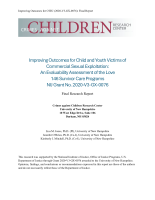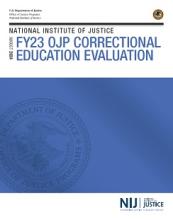The Role of Social Support in Elder Financial Exploitation Using a Community Sample
Journal
Innovation in Aging
Date Published
2017
Agencies
NIJ-Sponsored
Publication Type
Research (Applied/Empirical)





